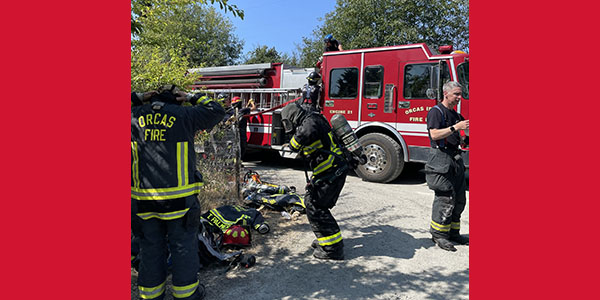No this isn’t a quote from the National Enquirer, but from Orcas Island Fire Chief Mike Harris, who researched national statistics for figures on the number of structure fires caused by rodents — mice, rats, squirrels, possums, anything that gnaws — chewing through electric wires in their search for warm “nesting places.”
“They’re just looking to get out of the elements, and if they can find a place inside your house — even better,” says Harris.
The danger of rodents inside a house (which can be accessed through any point of entry in both older homes and brand-new construction)is that their gnawing can cause wiring shorts that lead to fires, as the Orcas Fire Department experienced first-hand on Dec. 14 when they battled a multi-room fire on Spring Point which resulted in extensive smoke damage.
The house was a three-story “dream house” said Harris, and the culprit was a rat who was electrocuted. “That’s all the Fire Marshal needed to see,” said Harris, to determine the cause of the fire.
Harris described the fire as the most difficult fire he’d experienced on Orcas, and “one of the most difficult in my career.” The heat ducting carried the smoke to three different rooms, but it was the bitter cold that contributed to the difficulty of fighting the fire, as well as the challenges of a steep icy road and the house being built on a cliff, which limited access.
Beyond the fire hazard, the problem of rodents finding a home within your home is that they reproduce so fast. Harris says, “If they target your house, it’s not just them but the ones they’re creating.”
Food and water access are the main reasons for rodents entering buildings. Storing food (including trash) in sealed metal or hard plastic containers is a must. In addition, since rodents can enter buildings through holes as small as 1/4 inch, it is essential to seal off entry points with metal materials, such as steel wool or small-mesh metal screens.
Trapping and baiting are also important measures to take should food, water, and access restriction fail to address the problem of unwelcome house guests.






